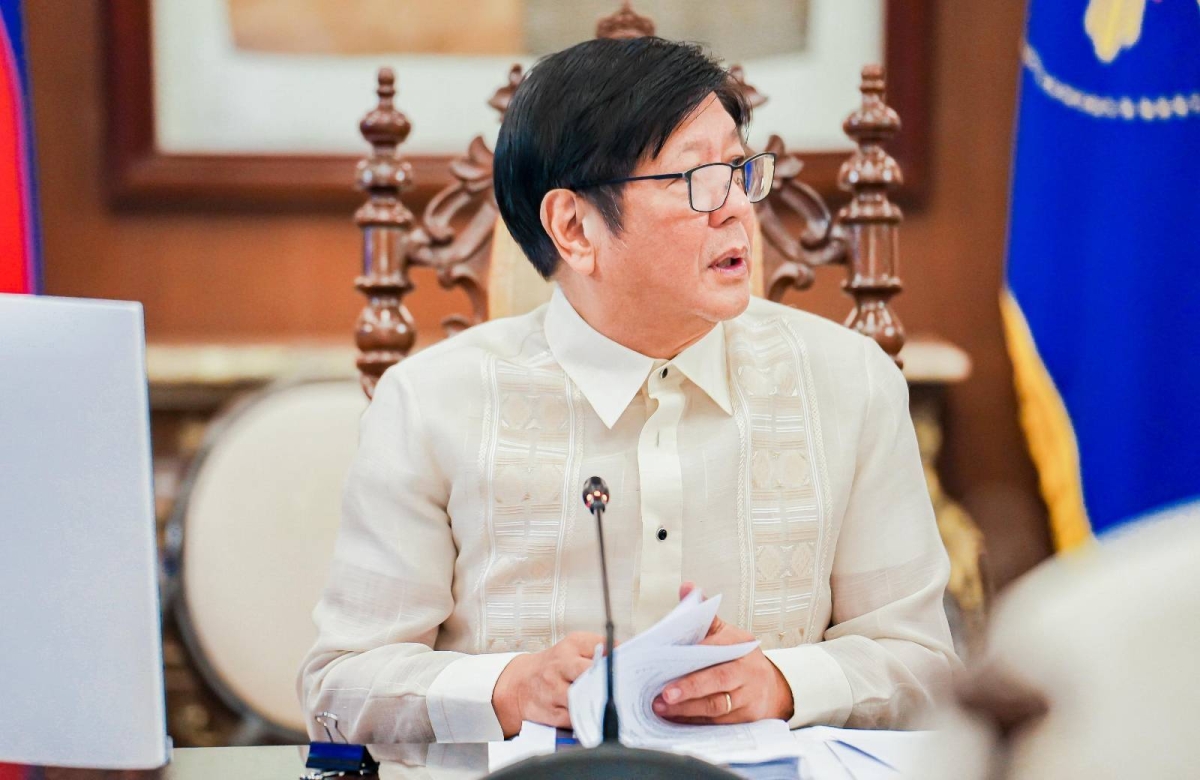OPENING up the Philippine economy toward greater normalcy is the key accomplishment of President Ferdinand Marcos Jr. in his first year in office as it allowed the country to bounce back quickly from the pandemic, an economist said on Saturday.
In a media forum in Quezon City, Michael Ricafort, chief economist at Rizal Commercial Banking Corp., said the Marcos government also started investing into the future with its goal of becoming a middle-income status country in the next few years.

Even before the Covid-19 pandemic, Ricafort noted that many global banks were predicting that the Philippines would become a big economy by 2050 and beyond.
The key element is the country’s huge population, one of the biggest in the world, Ricafort said.
“That’s more than 110 million Filipinos. That’s the key ingredient, or the key requirement,” he said.
To attain that goal, however, the country’s economy has to be productive and must have a well-educated workforce, Ricafort said, noting that more than 50 million Filipinos are within working age, with an average of less than 25 years old.
On Tuesday, the President gave himself an “incomplete” grade for his performance during his first year in office, saying there was still more to do as the delivery of his promises remains a “work in progress.”
Cabinet men laud first year
But his Cabinet officials believed that the President marked his first year in stride with “historic gains” and “substantial reforms” implemented during his first year as chief executive.
In separate statements on social media, Presidential Communications Secretary Cheloy Garafil said the Cabinet secretaries cited several development programs and projects of the government to further improve the living conditions of the Filipinos.
With the President’s leadership, Migrant Workers Secretary Susan Ople also said that the Department of Migrant Workers, being the youngest government agency in the bureaucracy, managed to overcome many “hurdles of transitory work.”
Ople said the first year of Marcos administration yielded solutions to “long-festering problems besetting our OFWs (overseas Filipino workers), our seafarers because the goals are clear, the focus sharp.”
Ople also credited the legislative branch for its “ongoing efforts to build a strong department and expand services to our OFWs.”
Trade Secretary Alfredo Pascual described Marcos’ leadership style as “visionary” which resulted in “remarkable achievements” that are pushing the progress of the Philippine economy and fostering partnerships with both local and foreign markets.
“His strategic guidance to the Department of Trade and Industry in promoting investments and ease of doing business is our driving force to achieve shared prosperity for all,” Pascual said.
Pascual said among the key policies that Marcos has put in place to support trade and investments are the entry into force of the Regional Comprehensive Economic Partnership Agreement, which enhances the country’s competitiveness; the establishment of the Green Lane for Strategic Initiatives via Executive Order 18, which provides a one-stop action center and for fast-tracking the permitting and licensing of foreign investments; and the strong backing for the Philippine Export and Development Plan by issuing Memorandum Circular 23 to set the stage for the successful implementation of the plan.
National Economic and Development Authority (NEDA) Secretary Arsenio Balisacan said that although Marcos was faced with macroeconomic shock in his first year in office due to the Covid-19 pandemic, the Chief Executive’s assumption into office provided the “critical pivot toward the country’s full recovery” from the global health crisis.
“Moreover, his leadership is charting for the Philippines a path that is resilient and inclusive. Recognizing the immediate issues at hand, the President crafted his 8-Point Socioeconomic Agenda, a list of priorities that would guide the policies, programs and initiatives of his presidency,” Balisacan said.
Balisacan said that a year into the Marcos presidency, the Philippine economy remains firmly on track as it returns to its high-growth norm, supported by a strong labor market performance and a downward-trending inflation that is on its way to reaching the government’s target.
The NEDA chief also said the government has also actively enlisted the help of the private sector in marketing the country as a promising investment destination and in creatively designing and carrying out its programs and initiatives.
‘In the right place’
Social Welfare Secretary Rexlon Gatchalian said that Marcos’ heart is in the “right place” with his vision to uplift and look after the well-being of the marginalized and vulnerable sectors of society.
“The President’s marching order is for the DSWD (Department of Social Welfare and Development) to use the entire machinery of government to achieve the goal of poverty incidence reduction by single digit,” Gatchalian said.
With the President’s directive in mind, he said the DSWD managed to strategically place satellite offices in several parts of the country including in Bulacan, Antipolo, among others, and expanded the supplemental feeding program for children enrolled under the Child Development Centers and Supervised Neighborhood Play.
Interior Secretary Benjamin Abalos Jr. said the agency has carried out notable reforms in terms of local governance, and peace and order under the leadership and guidance of Marcos.
“The Department has taken to a higher level the country’s fight against illegal drugs with its flagship program, the Buhay Ingatan, Droga’y Ayawan, or BIDA program,” Abalos said.
He said the BIDA program enjoins all levels of the bureaucracy, from the national down to the barangay (village), to enhance their anti-illegal drugs campaign.
Through the President’s guidance, Abalos said the Department of the Interior and Local Government has raised the bar for local government units to improve public service delivery toward excellence in service through the progressive performance system, the Seal of Good Local Governance.
Marcos became the 17th President of the Philippines in 2022 when he was elected by 31 million Filipinos to succeed Rodrigo Duterte. — Catherine S. Valente
*****
Credit belongs to: www.manilatimes.net
 Atin Ito First Filipino Community Newspaper in Ontario
Atin Ito First Filipino Community Newspaper in Ontario






